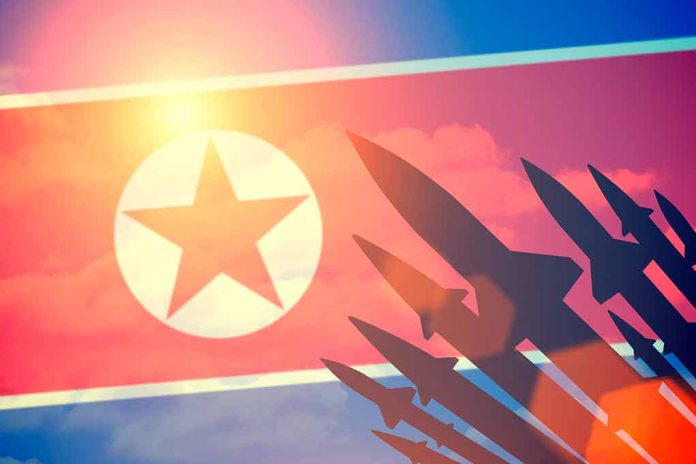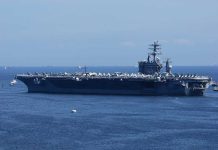
The growing alliance between North Korea and Russia in the Ukraine conflict has significant implications, but the extent of North Korea’s involvement remains unclear.
At a Glance
- Reports suggest North Korean soldiers are aiding Russian forces in Ukraine.
- A defense pact between North Korea and Russia solidifies their military cooperation.
- There are denials from both nations regarding the supply of arms to Russia.
- North Korea’s alignment with Russia indicates a shift in its foreign policy.
North Korean Military Presence in Ukraine
Emerging reports hint at North Korean soldiers joining Russian troops on Ukrainian soil. South Korea’s defense ministry voices concern about North Korean officers being casualties in a recent Ukrainian attack near Donetsk. Despite North Korea’s denials, the international community remains skeptical, particularly given North Korea’s defense pact with Russia, which underscores their commitment to military aid. The situation signifies deeper cooperation and geopolitical shifts, particularly unsettling for neighboring South Korea.
The pact extends beyond military cooperation, reportedly involving vital munitions exchanges for sophisticated military technology. This arrangement could bolster Russia’s capabilities and adjust the power dynamics within the conflict. North Korea’s enthusiastic support for Russia’s actions, recognizing territories such as Donetsk and Luhansk, further cements its alliance, evident from frequent diplomatic exchanges between Kim Jong Un and Vladimir Putin.
The Trump administration established peace in Russia, China, North Korea, the Balkans, and the Middle East, all areas experiencing tension or conflict today under the Biden administration. Ambassador Ric Grenell explains how the Trump administration did it and what a second Trump… pic.twitter.com/aopi2ijCAK
— CPAC (@CPAC) October 7, 2024
Geopolitical Climate and Reactions
North Korea’s foreign policy direction follows the fallout from its summit with the U.S. in 2019, pivoting towards self-reliance and opposition to Western influence. This is reinforced by the recent defense pact with Russia, which some analysts argue may signify a renewed Cold War-esque relationship. This alliance includes strict clauses disallowing third-party agreements that could undermine mutual interests.
In response, South Korea contemplates offering military support to Ukraine, marking a strategic shift. Meanwhile, Russia’s President Putin has issued warnings against South Korea’s potential involvement. The escalating situation threatens to further strain Inter-Korean relations and challenge Western adversaries who face an increasingly assertive axis between North Korea and Russia.
🇰🇵 🇷🇺 North Korea to send troops to Ukraine to fight alongside Russia.
The defense pact signed between Russia and North Korea on June 19, 2024, includes a provision for mutual military assistance in the event of war. Shortly after the pact was signed, North Korea announced…
— BRICS News (@BRICSinfo) June 26, 2024
Implications for Global Security
The ramifications of North Korea’s partnership with Russia are broad, increasing regional insecurity and promoting military escalations. With ongoing economic hardships, North Korea’s resources appear limited, yet weaponization efforts persist. Kim Jong Un’s assertion of North Korea as a nuclear power, enabled by a controversial 2022 law on nuclear strikes, escalates tensions further.
The strategic realignment is not only challenging for Eastern Asia but poses heightened risk internationally, widening the rift between nations supportive of Ukraine’s sovereignty and those aligning against U.S. interests. As the intricate web of alliances develops, the international community is watching closely, wary of potential preemptive actions and diplomatic fallouts.








